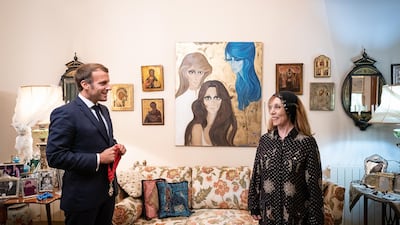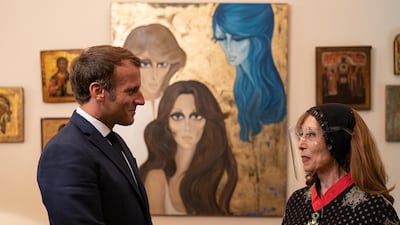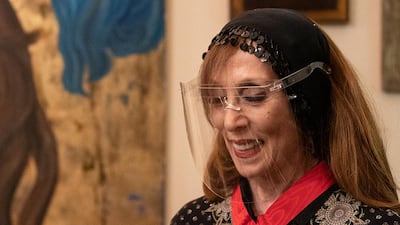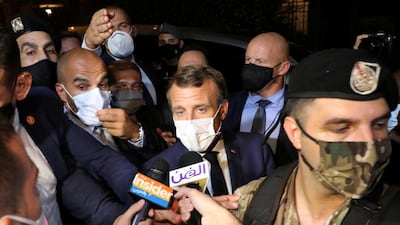French President Emmanuel Macron on Monday visited the home of Lebanese singing legend Fairouz.
And today, the private singer, 84, shared photos of the visit, showing her looking well but taking safety precautions against coronavirus by wearing a visor. It also gives us a glimpse inside her home:
Macron visited Fairouz's home in the suburb of Rabieh, about 14 kilometres north of Beirut, for dinner. He was also there to award her the Legion of Honour, France's highest order of merit for military and civil merits, established in 1802 by Napoleon Bonaparte. The photos show the moment Fairouz received the medal.
Macron described his meeting with Fairouz, who as a figure has almost become synonymous with the country's pain and glory, as "very beautiful, very strong".
"I told her everything that she represented to me, of a Lebanon that we love and that many are expectant of, a nostalgia that many have," he said.
A glimpse inside her home
The photos have also been shared widely because they give a glimpse into the colourful and eclectic home of the famously reclusive singer.
For instance, we can see that above her sofa is a painting called Feiruz, from 1980 by Croatian-Lebanese artist Cici Tommaseo Sursock (1923-2015). That work is surrounded by religious paintings.
Her home is also full of family pictures and interesting textiles.
This is not the first time this year we've seen inside her house. In April, she shared this video of herself praying at home:
The star has not performed publicly in nearly a decade, seldom gives interviews and is rarely seen in public.
Born Nouhad Haddad in Lebanon in 1935, she is one of the Arab world's most influential singers, with a vast repertoire of more than 1,000 songs, not all of which have been released. For decades, almost all radio stations in the region started their morning broadcast with a Fairouz song.
The last photo Fairouz shared of herself on Twitter was this faraway shot in 2018:
After his meeting with her, Macron said that his favourite Fairouz song is Li Beirut, a piece that is considered a rallying cry for many Lebanese people.







